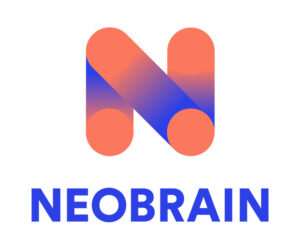Don’t be fooled by fashions and fads. If you were to believe everything you read—including my own articles—you’d get the impression that freelancing has become the universal panacea of the world of work. Behind this explosion in the number of people working under this type of contract, the vast majority of whom have deliberately chosen to do so, lie lots of little problems that quite a few startups have already attempted to solve.
They generally go about it from a typically French standpoint—one that doesn’t export very well incidentally—that’s related to the various different French versions of workers’ rights. There’s one startup offering a works council, there’s the vertical market, uberizing a non-competitive sector…and so on and so forth. And then there are those who have had the bright idea of introducing a social security plan—for the very people who have decided to opt out of just that! In short, driving out spontaneity… French startups crave health insurance and social security!

What if freelancers were to join modern platforms as franchisees instead of selling their skills in the marketplace? This is something we’re trying to do with SkillValue Freelancer
Yet there must be more specific things we could do to improve freelancer independence and financial security—but from a much more creative standpoint. Their basic requirement is quite simple: increased income and maximum independence. Similarly, the “all shiny and new” effect could almost make us forget that the real problems are only just starting to appear and that they cannot be solved by reproducing models that have been deliberately left behind.
Before we start offering freelancers solutions, we need to take a close look at the issues that affect them
Freelancers are no different from anyone else. They too prefer working on subjects that are meaningful to them, and they too prefer projects that help them to grow, at whatever level. Yet quite a lot of them—in the technology sector at any rate—still haven’t necessarily managed to disperse that discomfort they felt when they worked for an IT services company. Which is hardly surprising, as often they do the same job and fulfill the same role.
They have to decide for themselves what they are worth and they no longer belong to any kind of organization. It’s not that IT services companies or agencies are in any way the kind of evolving organization that dreams are made of—but nevertheless, quite a few of them have made progress, in recent years, in terms of agile transformation, back–front development, and SAAS integration, and have been ready to offer their staff training and development programs.
Last but not least, when you work in technology, you know you don’t know everything and that you’ll be interacting with other people. And that can inspire fairly complex feelings. Am I part of the value chain or am I just a single task robot? In tech companies, pride of belonging has far more to do with this than with foosball or chief happiness officers. Someone working in a team that makes a totally cool product is much happier than the 10th person to replace the guy who used to do the same job on an old banking app.
In this context, freelancers are completely on their own. They have to find their own inspiration and design their own development path (something that isn’t necessarily all bad). Nobody really spends any time introducing them to their new project (not so for salaried workers), nobody spends any time saying goodbye (not so for salaried workers or even associates of computer services companies).
Freelancers are free to pick and choose…well, yes and no.
Because, in the end, if we’re talking about someone who likes working on specific, long-term, complex topics, deciding what to do when a job is over can be tricky. At the end of the day, the increased financial gain compared with being an employee isn’t always enough to tide things over until the next interesting project. There’s a real danger of having to fill in with tasks of the more bread-and-butter variety. And the more bread-and-butter jobs freelancers take on, the less time they have to find something more appealing.
These observations have led me to a number of key conclusions:
-
Freelancers need someone to help them find quality projects that match their objectives and will be satisfying from a qualitative standpoint for both parties. Let’s call this someone a CTO.
-
Freelancers need someone to discuss both their career path and market developments with. Let me give you an example. It’s incredible to think that in just one year, mobile developers have moved from natural languages to multi-platform solutions. Believe me, the developers concerned don’t understand what’s happened. Once again, here a CTO would come in handy.
-
Freelancers need financial security because one never knows. They too have mortgages to pay and families to feed.
-
Freelancers have to prepare for the future by creating lasting commercial relationships with their clients.
The central theme of our proposal concerning freelancing in the tech sector will be to construct a serious, creative answer to all these questions. Most of these matters involve commercial issues, such as establishing a stable relationship with clients. Others are financial, such as providing oneself with some kind of security for a rainy day. And the rest are somewhat HR related—when freelancers want to leave hierarchical structures behind.
Here is my answer. The services provided by freelance platforms need to be thoroughly overhauled and high quality platforms must onboard their freelancers properly, by offering them the chance to be part of a real freelance community, that has all the right technical tools, so that they can go a lot further with each of their clients and offer them tools, services and solutions that might guarantee future income, long after their assignment is over.
Is it just a dream?
So, imagine that before starting his or her first project, our freelancer has talked to the platform’s CTO, who has explained what the client working environment is like, described any problems they came across as they got to know the client, and told him or her about all the services and solutions they’ll be able to offer once the project is underway: hosting, consulting, devops, dev center, test center, support center, etc. The freelancer is able to make his or her mark with the client, becomes more valuable to them, maybe helps them out or finds them organizational solutions. In this way, everything the freelancer has sold the client will go on bringing in income as long as there is revenue. Later, he or she could call the client and suggest solutions involving others. The freelancer is still independent but has become part of a much wider project at the same time. A sort of digital services franchisee, in a unique type of market relationship between the freelancer, the client and the platform that develops and packages the services.
Thus a freelancer’s four priorities would be catered to, without their having to buy in to services or join plans that are entirely at odds with their desire to be free of anything that involves contributions, more taxes or other income-draining structures. Selling more, and continuing to sell even when an assignment is finished, so that their income no longer correlates solely with the time spent on an assignment and their personal performance.
This is a project that Benoît Fillon, Eric Gouin and I truly believe in and we’ve decided to go for it. We’re going to have to design a range of service packages that will best complement a freelancer’s assignments and start presenting our idea to all the communities of independent developers we are targeting. There are so many amazing challenges ahead!
Find out all about the Pentalog & SkillValue freelance offer here.
Read more:
Freelancers: time to stop fleecing them with commission charges!
Freelancing, outsourcing, and hiring: how to tap into digital work resources









